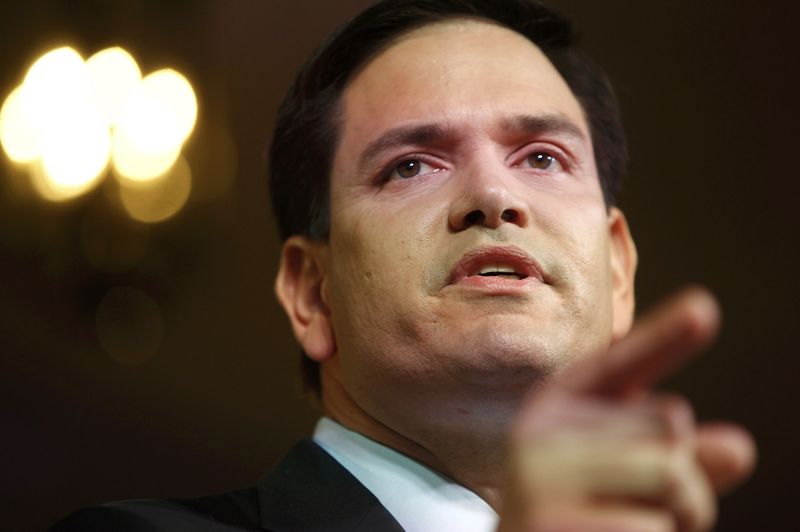(Bloomberg) -- Senator Marco Rubio is proposing legislation that would counteract China’s "Made in China 2025" economic-development initiative by restricting and taxing Chinese investment in the U.S. and by raising import duties on goods produced by industries supported by Beijing’s program.
In a report Tuesday from the U.S. Senate Committee on Small Business and Entrepreneurship on Tuesday, Rubio said he wants to use China’s own plans to boost manufacturing against it to combat what he describes as an existential threat to American industry.
"The American people know something has gone wrong," Rubio, a Republican from Florida, wrote in the introduction to the report. "Will our country look more like the land of shared opportunity my parents found when they arrived, or will we become a stagnant nation fighting over how to divide up what is left?"
As a solution, Rubio is pushing several bills, including one he introduced with Senator Tammy Baldwin, a Democrat from Wisconsin, that would track the industries and finished goods supported by the Chinese government and require countervailing action from the U.S. government.
He is also pushing a bill he introduced earlier this year with Democratic Senator Mark Warner of Virginia that would create an office within the White House to guard against state-sponsored technology theft and risks to supply chains that provide technology to U.S. consumers.
Additional legislation included in the proposal would target concerns over China’s management of its currency by canceling a bilateral tax treaty with the country and removing a tax exemption for China’s government income received from investments in the U.S.
Legislation proposed last Congress by Representative Mike Conaway, a Republican from Texas, would seek to force Chinese companies issuing securities in American markets to report more information to U.S. regulators.
In addition to penalties for China, the report also suggests measures to increase investment in small business and workforce development, including an increased Earned Income Tax Credit and a prohibition on non-compete clauses.
